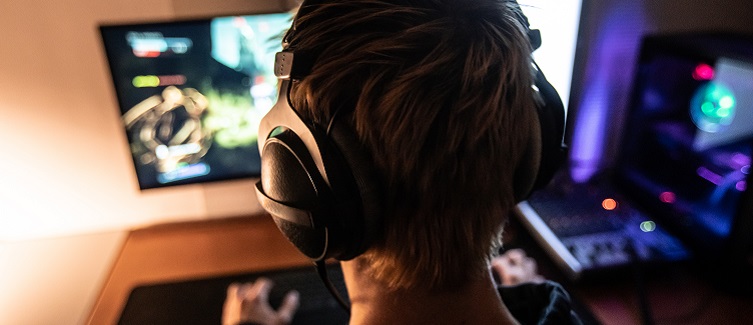Most esports don’t involve physical activity. But sports-related injuries during training and competitions are still common.
Enhanced fine motor skills are necessary to compete successfully in esports. But overuse of the arms, hands, and fingers is leading to orthopaedic injuries among esports players.
According to an article in AAOS Now, hundreds of millions of players take part in esports and spend 5 to 10 hours per day in front of the screen. Those hours increase at both the collegiate and professional levels where esports teams can practice up to 12 hours a day.
Never Miss a Beat!
Subscribe to Our HealthBeat Newsletter!
Thank you for subscribing!
You can now select the specific newsletters you'd like to receive.
You are already subscribed.
Subscribe to more newsletters in our email preference center.
Sorry, an error occurred. Please try again later.
Get Healthy Tips Sent to Your Phone!
Common Complaints of Esports Athletes
Besides eye strain and fatigue, esports athletes experience a range of musculoskeletal injuries. De Quervain’s tenosynovitis or radial styloid tenosynovitis — known as “gamer’s thumb” — is the most common injury among players. Caused by repetitive motion, this painful condition involves inflammation in the tendons on the thumb side of the wrist.
Other common esports injuries include:
- Hand cramps and injuries
- Wrist conditions like carpal tunnel syndrome
- Tendonitis in the forearms
- Shoulder stiffness
- Back and neck pain
Primary Causes of Esports Injuries
So, what causes these problems? The American Academy of Orthopaedic Surgeons estimates that up to 40% of competitive gamers are not physically active. That results in a weaker core that can lead to certain musculoskeletal injuries and conditions. Most esports injuries are the result of:
- Overuse
- Muscle weakness
- Poor posture
- Deconditioning
Prevention and Treatment Tips
Preventing these injuries and conditions is always preferable to treating them. Competing at a high level requires repetitive motions that can lead to overuse injuries. Some steps to lessen the chance of getting an esports injury, include:
- Participating in physical exercise and conditioning
- Practicing proper ergonomics and postures
- Taking frequent breaks and not “overdoing it”
If you already have an injury related to esports, the sports medicine doctors and orthopaedic surgeons at UPMC Sports Medicine can help. Nonsurgical options for overuse injuries include:
- Rest or activity modifications
- Anti-inflammatory medicines
- Physical therapy or injections
- Ergonomics assessment/correction
- Nutrition consultation
- Stretching exercises
- Wearing a brace
- Ice or elevation
- Exercises to restore endurance/prevent recurrence
If nonsurgical treatments do not help, your doctor may recommend minimally invasive surgery to repair an injury.
After surgery, most patients take part in a rehabilitation or physical/occupational therapy program to build stamina and restore range of motion.
To learn more about common injuries in esports or to schedule an appointment with one of the experts at UPMC Sports Medicine, call 1-855-937-7678 or visit our website.
About Sports Medicine
An athletic lifestyle carries the potential for injury. Whether you’re an elite athlete or a weekend warrior, UPMC Sports Medicine can help. If you are looking to prevent, treat, or rehabilitate a sports injury, our multidisciplinary team of experts can help you get back into the game. If you are seeking to improve your athletic performance, we can work with you to meet your goals. We serve athletes and active people of all ages and experience levels. Our goal is to help you keep doing what you love. Visit our website to find a specialist near you.
